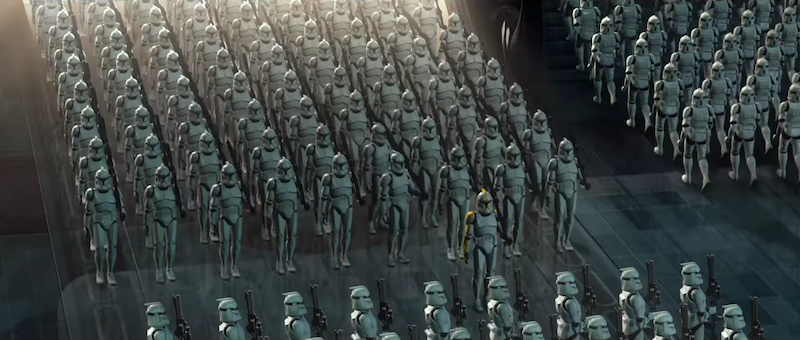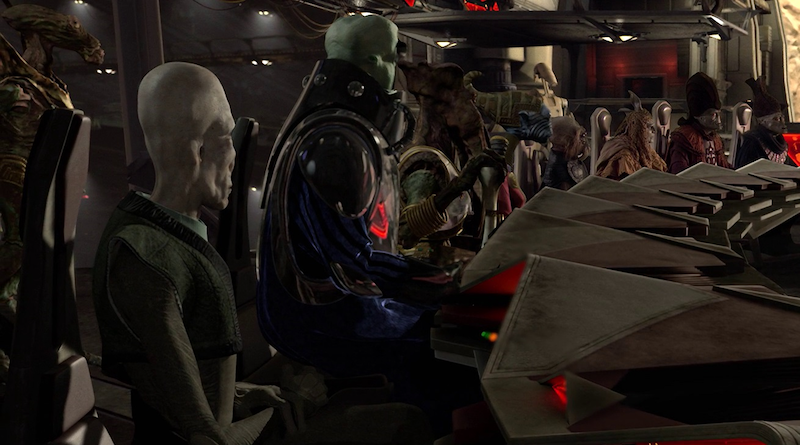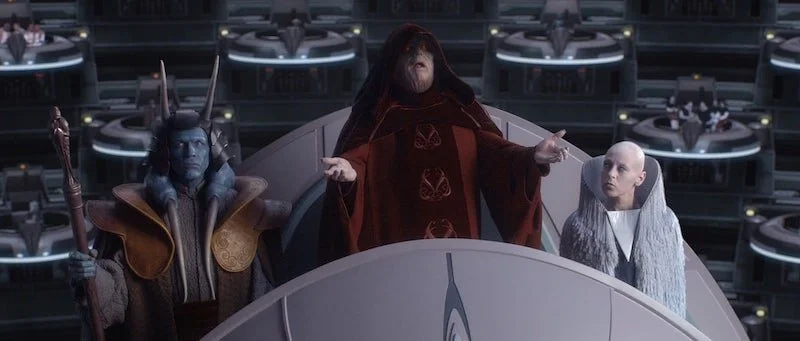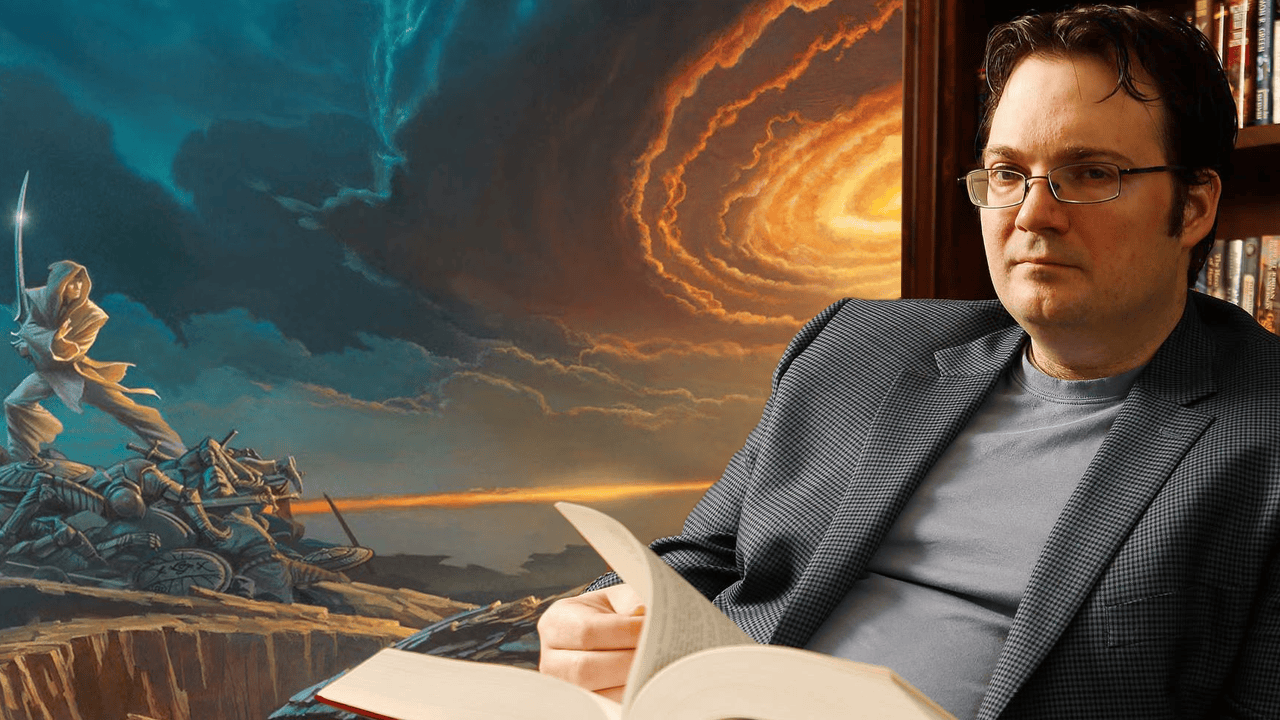The Psychology Behind The Rise of The Empire
Image Source: Den of Geek
Mark Twain once said, “History never repeats itself, but it does often rhyme.” With one of history’s most blatant examples of fascism regularly taught in school, it is an idiom many today take heed of, especially with an increase in anti-semitic rhetoric being used by prominent figures around the world as of late. Those seeing the signs are often using the lesson of history to raise red flags. Even still, it is a surprise to many that such despicable things are said today, and people wonder how this happens. Many more still go on without noticing, content to live their lives until it is too late. It is that strange mix that could sadly lead to a scenario similar to Padme’s defeated astonishment when Palpatine declares the Republic to be the first Galactic Empire.
“So this is how liberty dies. With thunderous applause.”
Image Source: StarWars.com
That is how fascism takes hold. It is a slow creep, and it relies on a being’s most primal function: survival. When survival is threatened, any species will do whatever it takes to try and survive. For a sentient, intelligent, and civilized species, like the spacefaring ones of the galaxy, far, far away, they have developed to a point where they have built institutions to provide the necessary safeguards so they can go about their lives and develop to such a technological point. There is a great NPR TED Radio Hour episode about this concept. According to the presenter, civilization cannot exist without the perception of safety. When certain institutions are put in place to provide that safety and the populace accept the legitimacy of that organization, then people can devote their attention to things beyond safety.
The key word here is “perception.” There is a concept in psychology known as the availability heuristic. Heuristics are “shortcuts” in how we come to conclusions. We use them to make faster judgments. They are generally accurate, but they are not a 100% guarantee like an algorithm. The availability heuristic works on this premise. The presenter in the TED hour episode talked about how our understanding of the safety of the world around us changed when newspapers are invented. The pieces that appear in the news are, by their name, new and do not happen that often, hence why people are made aware of them. However, the framing and the phrasing of a piece, and how much it relates to safety can affect the perception of reality of those who listen.
RELATED:
Take September 11, for example. How often do planes fly into buildings? It is so staggeringly low that flying on an airplane is still a safer way to travel than walking down the street. Yet, after September 11, plane ticket sales plummeted. Why? The most readily available instance involving planes in the mind of many Americans involved crumbling skyscrapers and fire. Here is another example: the fear of dogs. People who are afraid of dogs are often afraid because of some traumatic experience in their past. When they see a dog or that particular breed, they become anxious and cautious. They may move across the street. However, the likelihood of the dog they are avoiding being as aggressive as the one that caused the fear is slim. Still, they cannot ignore their memory. It is what is readily available to them.
In Star Wars, we have a relatively peaceful galaxy. But when some star systems find the corruption of the government too pervasive and threaten to secede if it continues. The threat of war looms, and suddenly, there is a threat to that peace. With a news cycle, the knowledge of that threat does not dissipate, and they play on that threat for viewership. It is a threat to peace, a threat to people's lives, and an end to the stability of the Republic. The mind moves from its focus on the things it can process in a time of peace and starts to devote some of that processing power toward thoughts of survival. They look for protections and ways to prevent instability.
This often takes the form of a need for leadership, someone to lead and guide them. That’s not enough, though. Institutions are designed to provide security, especially security that can be led by strong people. These institutions are given the discretion and authority to address the threat and convince the populace that they will keep them safe. Except those institutions did not exist in the Republic. There is the Jedi, of course, but they clearly are not able to fix the situation. So in the Republic, people are now met with a threat to their safety, and the standard approach to addressing disputes has failed. The panicky beings sacrifice their reasoning, in the name of survival, to a willingness to hand their direction and security to the one that starts telling them what they want to hear, and promising them what they want most: safety.
Image Source: Wookieepedia
Palpatine knows this, having maneuvered the Republic into its secession crisis, and he knows this threat will lead them to look for protection. Throw in some assassination attempts, and now you have senators fearing for their lives. This is now a problem too widespread for the Jedi to keep the peace. So a motion is filed to give the Chancellor more powers than he usually would, allowing the clone army to be brought in. It is obvious that the order for the clones was put in far before the Separatists began to threaten the stability of the Republic. How else would Palpatine have been able to produce one so soon after getting his new executive powers? That fact does not register with people, however. The Republic has its protection now, and they have a leader that they could rally behind. His promise to lay down his powers when the crisis is over is a chef’s kiss to the situation. To those paying attention, it should have been obvious from the start. He is never going to do that.
This is where propaganda really matters. It helps maintain a perceived need for these measures. Look at these atrocities the bad guys are doing! Look at the success of our great grand army! Nothing turns people against a government like a bad war press and low morale. It also feeds into everyone’s confirmation bias. People like to feel like they are correct. Who doesn’t? Knowing you’re right doesn’t make you feel stupid or out of touch. The problem arises when you can’t admit you’re wrong. People have their predisposed views of the Separatists, influenced by their own biases and portrayal in whatever media they watch. So when word of the Separatists’ atrocities reaches their ears, it only confirms what they already believe in their mind, which then just makes those views that much harder to change or correct. Anakin’s reaction to Padme’s question about whether they’re on the right side anymore is a perfect example.
Image Source: Wookieepedia
Taken together, when the perceived threat is finally no longer a threat, it is no surprise that the Senate lauded Palpatine’s declaration that the Republic was now an Empire. They do not think about how he is not giving up his power or that the war has gone on long enough. They react to what he used to justify that: the attack on his life and the “betrayal” of the Jedi. Oh no, another threat? It is textbook fascism. Shift suspicion, anger, and frustration onto someone else. Who better to place that blame on than some perceived obscure, secretive (in the sense that few outside the target group know much about them), seemingly influential group that operates behind the scenes? Mind you, much of this perception is fabricated and manipulated. As a result, rumors always surround talk of them. And then, the popular leader brings to light an attempt on his life by this group, and now there’s a scapegoat. How could the governing body of the Republic think to oust their leader when he’s just been attacked? It is a political impossibility.
Image Source: StarWars.com
By then, it’s too late. The means of keeping that power is already in place, and it is done so with widespread support. Any attempt to challenge the authority of the new government is portrayed as another threat and, therefore, must be disciplined accordingly. It’s a new reality, and its power is so strong that to change and remove it is monumentally harder to do than the way in which it came to power.
As in all things, you don’t know what you have until it’s gone.
READ NEXT:
Source(s): NPR, Wookieepedia, Revenge of the Sith
















